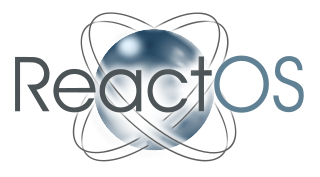
Free software or libre software is computer software distributed under terms that allow users to run the software for any purpose as well as to study, change, and distribute it and any adapted versions. Free software is a matter of liberty, not price; all users are legally free to do what they want with their copies of a free software regardless of how much is paid to obtain the program. Computer programs are deemed "free" if they give end-users ultimate control over the software and, subsequently, over their devices.

GNU is an extensive collection of free software, which can be used as an operating system or can be used in parts with other operating systems. The use of the completed GNU tools led to the family of operating systems popularly known as Linux. Most of GNU is licensed under the GNU Project's own General Public License (GPL).
Trusted Computing (TC) is a technology developed and promoted by the Trusted Computing Group. The term is taken from the field of trusted systems and has a specialized meaning that is distinct from the field of confidential computing. With Trusted Computing, the computer will consistently behave in expected ways, and those behaviors will be enforced by computer hardware and software. Enforcing this behavior is achieved by loading the hardware with a unique encryption key that is inaccessible to the rest of the system and the owner.

Xandros, Inc. was a software company which sold Xandros Desktop, a Linux distribution. The name Xandros was derived from the X Window System and the Greek island of Andros. Xandros was founded in May 2001 by Linux Global Partners. The company was headquartered in New York City.
The Windows Hardware Engineering Community (WinHEC) is a series of technical conferences and workshops, where Microsoft elaborates on its hardware plans for Windows devices.

ReactOS is a free and open-source operating system for amd64/i686 personal computers intended to be binary-compatible with computer programs and device drivers developed for Microsoft Windows. ReactOS mainly competes against computer operating systems such as Microsoft's Windows and Canonical's Ubuntu. ReactOS has been noted as a potential open-source drop-in replacement for Windows and for its information on undocumented Windows APIs.

Free and open-source software (FOSS) is a term used to refer to groups of software consisting of both free software and open-source software where anyone is freely licensed to use, copy, study, and change the software in any way, and the source code is openly shared so that people are encouraged to voluntarily improve the design of the software. This is in contrast to proprietary software, where the software is under restrictive copyright licensing and the source code is usually hidden from the users.

NDISwrapper is a free software driver wrapper that enables the use of Windows XP network device drivers on Linux operating systems. NDISwrapper works by implementing the Windows kernel and NDIS APIs and dynamically linking Windows network drivers to this implementation. As a result, it only works on systems based on the instruction set architectures supported by Windows, namely IA-32 and x86-64.

Defective by Design (DBD) is an anti-DRM initiative by the Free Software Foundation. Digital rights management (DRM) technology restricts users' ability to freely use their purchased movies, music, literature, software, and hardware in ways they are accustomed to with ordinary non-restricted media. As a result, DRM has been described as "digital restrictions management" or "digital restrictions mechanisms" by opponents.

Linux is a family of open-source Unix-like operating systems based on the Linux kernel, an operating system kernel first released on September 17, 1991, by Linus Torvalds. Linux is typically packaged as a Linux distribution, which includes the kernel and supporting system software and libraries, many of which are provided by the GNU Project. Many Linux distributions use the word "Linux" in their name, but the Free Software Foundation uses the name "GNU/Linux" to emphasize the importance of GNU software, causing some controversy.
Windows Vista, an operating system released by Microsoft for consumers on January 30, 2007, has been widely criticized by reviewers and users. Due to issues with new security features, performance, driver support and product activation, Windows Vista has been the subject of a number of negative assessments by various groups.
This is a technical feature comparison of different disk encryption software.
GNU variants are operating systems based upon the GNU operating system. According to the GNU project and others, these also include most operating systems using the Linux kernel and a few others using BSD-based kernels.

Software remastering is software development that recreates system software and applications while incorporating customizations, with the intent that it is copied and run elsewhere for "off-label" usage. The term comes from remastering in media production, where it is similarly distinguished from mere copying.
The Protected Media Path is a set of technologies creating a "Protected Environment," first included in Microsoft's Windows Vista operating system, that is used to enforce digital rights management protections on content. Its subsets are Protected Video Path (PVP) and Protected User Mode Audio (PUMA). Any application that uses Protected Media Path in Windows uses Media Foundation.

William John Sullivan is a software freedom activist, hacker, and writer. John was formerly executive director of the Free Software Foundation (FSF), where he has worked since early 2003. He is also a speaker and webmaster for the GNU Project. He also maintains the Plannermode and delicious-el packages for the GNU Emacs text editor.

The GNU General Public License is a series of widely used free software licenses that guarantee end users the four freedoms to run, study, share, and modify the software. The license was the first copyleft for general use and was originally written by the founder of the Free Software Foundation (FSF), Richard Stallman, for the GNU Project. The license grants the recipients of a computer program the rights of the Free Software Definition. These GPL series are all copyleft licenses, which means that any derivative work must be distributed under the same or equivalent license terms. It is more restrictive than the Lesser General Public License and even further distinct from the more widely used permissive software licenses BSD, MIT, and Apache.
The Free Software Foundation (FSF) is a 501(c)(3) non-profit organization founded by Richard Stallman on October 4, 1985, to support the free software movement, with the organization's preference for software being distributed under copyleft terms, such as with its own GNU General Public License. The FSF was incorporated in Boston, Massachusetts, US, where it is also based.

Q4OS is a light-weight Linux distribution, based on Debian, targeted as a replacement for operating systems that are no longer supported on outdated hardware. The distribution is known for being similar in appearance to Microsoft Windows operating systems with some of its pre-installed themes inspired by the look and feel of Windows 2000 and Windows XP.













